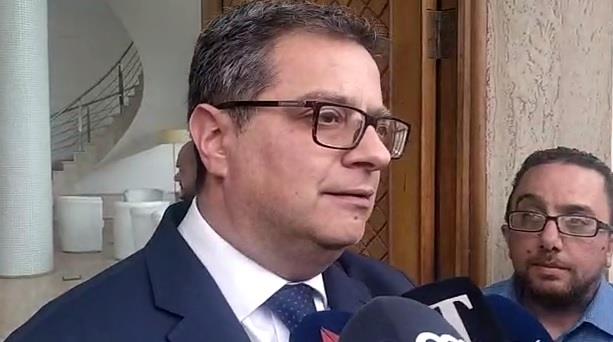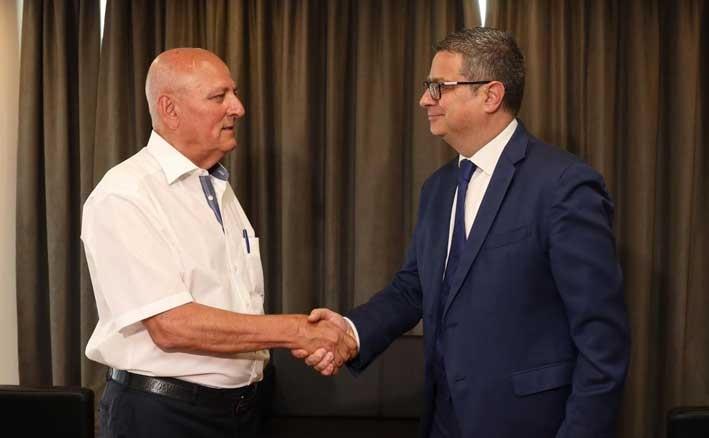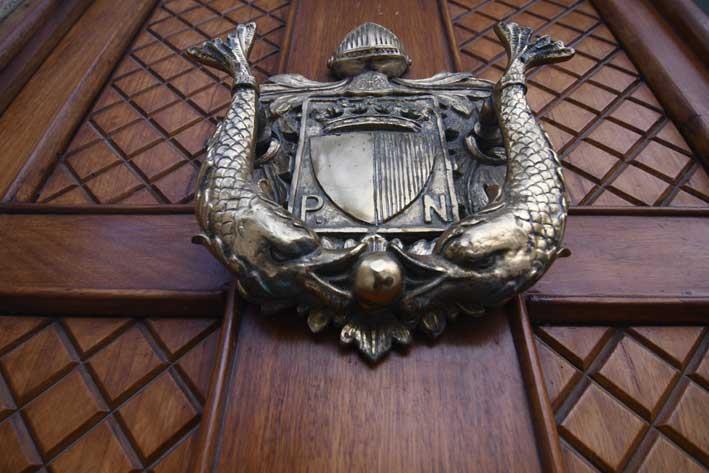Never before has the PN been in such a sorry state of affairs. Avoiding the obvious clichés what, basically, has led to this? What brought the party to this point?
If there is one obvious cliché to be avoided, it would be to say that the PN has never been in such a state as it is today.
In its almost 140-year history, the PN has had lower points. It was worse in the 1940s, and some aspects of the crisis of the early 1970s – which I myself experienced – were worse. Today, people illustrate just how acute the crisis is by talking about the possibility of a split and yet the party was divided in the 1920s and split again a generation later.
History warns us not to be complacent. If things are bad now, they can still get worse. A split is not a solution. History also teaches us that a crisis can be overcome and true unity achieved – not instantly, but far more quickly than seemed possible during the worst of the crisis.
The causes of the crisis are multiple. Essentially, during the long period of government we gradually lost touch with ourselves. Internal debate diminished, so that General Councils became media events and not processes for policies to be owned by the activists. The capillary organisation of the party atrophied, which meant that not only could we mobilise less well than before but also that we went from being a party that was a cultural leader to one lagging behind the rest of society.
Being in government for such a long time meant that the impact of these failures was hidden. It became exposed in Opposition. The massiveness of the defeat in 2013 destroyed the confidence of many party activists. The years of little internal debate made it difficult to properly conduct the debate that was needed. The financial crisis has also obviously made addressing all the problems much more difficult.
In such an environment, a vicious circle of recrimination and misunderstanding – leading to a deepening of the crisis – is not unusual. It happened to Labour in the past and it has happened to other political parties elsewhere.
In the coming months, I hope to work with everyone involved to understand the situation better and to leverage all the goodwill to address it and move forward.

No other leader in either party has ever had as much underhand internal opposition, or found so many spokes in the wheels, as Adrian Delia. After he resigned from the position of leader, Simon Busuttil declared that Adrian Delia should have withdrawn his nomination to succeed him: unprecedented stuff indeed. Without this internal strife, would Delia have failed so miserably at the polls?
I doubt anyone familiar with the events that led up to the split between Boffa and Mintoff would consider anything today to be unprecedented. In any case, since the role I have just taken on commits me to being an impartial interlocutor with everyone in the party, I am obviously not going to comment on how you characterise the current situation in the PN.
There is no doubt that the present state of divisiveness within the PN played a good part in its massive electoral failure in May. But one would be missing the wood for the trees if one were to simply stop at that. There are other, more deep-rooted, factors which need to be forensically exposed and understood to launch a process of reflection that might enlighten the way forward.
Over the last three decades, Malta has gradually adopted a presidential model to elect parties to government: it is the leader who determines success or failure. With hand on heart, and without too many qualifications, can Adrian Delia lead the PN to victory in the next general election?
No, not as things currently stand. But things could possibly change if everyone pulls on the same rope allowing us to climb up out of the hole – mostly dug by ourselves – to embark on a successful, credible renewal process.
In my view, a renewal process of the PN ought not to be an end in itself. I would like it to be a serious, intelligent questioning of the whole political status quo in Malta. In a certain sense, the microbes gnawing at the innards of the PN feed from the microbes that infest the whole Maltese body politic and its culture.

Should Adrian Delia resign: yes or no?
If I answered that question, I would disqualify myself from the role I have just accepted, which is to be a fair and impartial interlocutor with everyone concerned. The moment I accepted the role, I gave up the right to express myself publicly on the major contentious issues.
After the PN’s electoral implosion in recent European and local elections, should the PN secretary-general and the strategy team members have offered their resignation?
I cannot answer that question for the same reason. It would also be a case of putting the cart before the horse, since my task involves taking stock of the PN’s situation. Expressing judgement now would indicate that I feel no real need to do so.
You wrote the first draft of the PN’s electoral programme for these elections. Why did you take that plunge when you knew everything was lost?
Programmes are not drafted simply to win elections. They are also statements of principle and of vision. They remind all those in the Party of what they have in common, what their mission is and why it is worth working together to fulfil it.

The PN has always won when there was some major national issue or issues on the table: violence, democracy under threat and economic collapse in the 1980s, opening the markets and normalising the country in the 1990s and then Europe at the turn of millennium. Could it be that the Party is now lost because its political DNA is not geared for normality?
I remember Lou Bondi proposing this theory but it never convinced me; it does not explain several election results. If opening up markets is abnormal, then the entire world has been living in abnormal times for the last 40 years.
But what I find really astonishing is that you think that Malta today is experiencing a period of normality. Labour spins it this way. But how can you fall for it? What is normal about blatant massive corruption at the highest levels; the army turned into a partisan instrument; the police and supervisory authorities reluctant to investigate prima facie evidence of crime? An assassinated journalist? European institutions and international media organisations concerned about how Malta is sliding backwards on various fronts?
The PN has the principles and history to show it is a political party for all weather and changing conditions. But if anything should concern us, it is not that we are living in a period of normality; it is that we are living in such disturbing times and still not convincing people that the PN is an alternative government.
The PN is not on top of the brief as it should be to communicate effectively to people that we are sowing the seeds for a future socio-economic crisis that will grow into serious difficulties for our children and future generations. I agree that most of us are hypnotised and lulled into a false sense of normality and security. The PN needs to come together fast and wake up to the fundamental dangers lurking under the surface, threatening the integrity and well-being of our society. There are great issues out there and we are simply missing the wood for the trees.

You declared that the way forward is for the party to rethink, re-found, rebuild and re-launch itself. Beyond these buzzwords what, specifically, are you proposing?
To rethink our basic policies in the light of today’s economy and society. To re-found the party as an organisation capable of engaging with a 21st century society and by making a clear statement of what the PN stands for; to re-build the capillary organisation of the Party, in the light of the changes in communications, for it to be congruent with society and to re-launch as a credible party of government.
Joseph Muscat took Malta from being one of the only countries without divorce to now being the most LGBTIQ-friendly country in the world. His political master stroke was to recognise that the PN was incapable of handling these liberal and democratic rights. As with Chinese torture, with every political cycle he threw a new one on the table, triggering instant chaos in the PN. What are your thoughts?
When the divorce law was passed, the government was Nationalist, and the law was passed with PN MP votes. The law was made a better law than the one originally drafted with the energetic contribution of some PN MPs.
It is true that the PN, as a party, said it did not think divorce should be passed but the referendum itself was non-partisan.
Having said that, it is true that, over the years, the PN managed to project itself as a political party that was hostile to certain civil rights.
The party’s principles are not the issue, however. It is a foundational principle, for us that laws should be passed to safeguard the interests of the State and its values of liberty and equality. If we can go back to that, we can avoid civil rights being used as a fig leaf by a government that does not respect some of the basic conditions of liberty and equality.

Does the PN have anything to learn from Joseph Muscat?
Possibly how to build a capillary organisation. But some of the lessons one might be tempted to adopt would be inimical to a healthy democratic and fair society.
How have Maltese politics changed since you were directly involved?
I was last involved as a political candidate in 2008. Since then, communication, demography, culture and economy have all changed in fundamental ways.
What has been the real problem for the PN, its message or the way that message is communicated?
Both.

MPs and party officials from both factions of the party are constantly at each other’s throats on social media platforms rather than resolving their differences at the party’s headquarters in Pieta. How much has this contributed to the PN’s current state of affairs?
It has not been constant but it has been more than necessary and, naturally, it makes things worse. It undermines trust within the party. It makes it easier to be cynical about anyone’s good intentions or loyalty. It helps create a toxic atmosphere and a toxic brand.
In your work, will you be working or consulting only with people who have a PN background?
I will begin working within party structures, but I intend to branch and reach out as much as seems useful.
You have been in or around the PN for about half-a-century. You have, without doubt, many virtues – particularly clear-headedness, which is now lacking in the PN. But what makes you think that you have the right solutions for its present and – even more so – its future?
Up until recently I was, of course, involved in the Court of Auditors, which is concerned not just with strictly financial auditing but, more broadly, with auditing organisational structures in the light of best practices and European values. Strategy, planning and communication are not simply events. They are ongoing processes, ways of handling information. My task is not to come up with solutions from above but to help reorganise the party from below. If that is accomplished, the party will become a party of the future once more, as it has been at so many different periods in its long history.